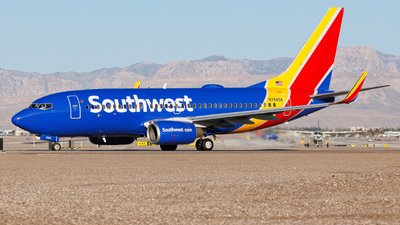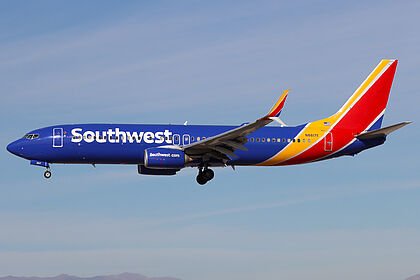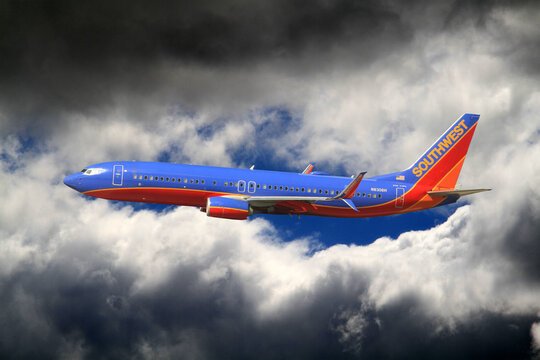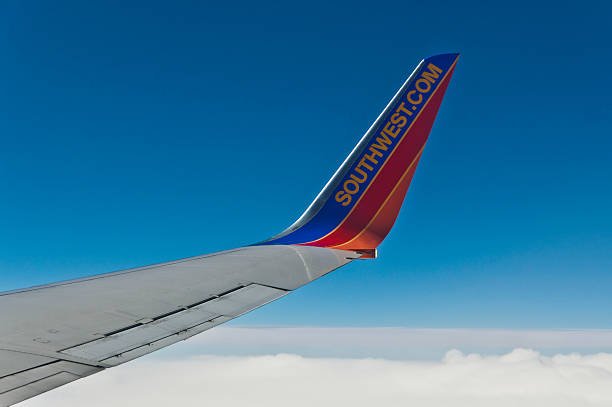Southwest Airlines, one of the largest low-cost carriers in the United States, has recently announced plans to reduce its corporate workforce by 15%. This decision comes as part of an effort to streamline its operations and reduce costs in a highly competitive aviation market. The airline, known for its budget-friendly fares and customer-focused service, has faced mounting pressure from rising fuel prices, labor costs, and market competition. The announcement has raised concerns among employees, customers, and industry analysts about its potential long-term impact.

1. Reasons Behind the Job Cuts
Southwest Airlines, like many other airlines, has been grappling with rising costs, particularly in relation to fuel and staffing. The airline has made it clear that this decision is driven by the need to remain competitive and profitable in an ever-changing market.
1.1 Rising Operational Costs
The aviation industry has been hit hard by global challenges such as inflation, increased fuel prices, and the lingering effects of the COVID-19 pandemic. Southwest Airlines, while known for its efficient operations, is not immune to these pressures. The company has reported a significant rise in fuel costs, which account for a large portion of its operating expenses.
1.2 Streamlining Operations for Efficiency
By cutting jobs, Southwest aims to streamline its operations and focus on its core strengths. The airline believes that a leaner corporate structure will allow it to make quicker decisions, adapt to changing market conditions, and continue to offer competitive pricing.
1.3 Adapting to Post-Pandemic Travel Patterns
The travel industry has experienced significant shifts in passenger demand and preferences following the pandemic. While air travel has rebounded, Southwest Airlines has noted changes in how people are booking flights, with an increasing demand for flexibility and low-cost options. The company is adjusting its workforce to meet these new realities.

2. Affected Employees and Departments
The job cuts will primarily affect corporate positions at Southwest Airlines’ headquarters in Dallas, Texas. While the airline has not disclosed specific departments or roles that will be impacted, it is likely that areas such as administrative, support, and management positions will be the most affected.
2.1 Focus on Corporate, Not Frontline Workers
Southwest has emphasized that its frontline employees, including pilots, flight attendants, and ground crew, will not be affected by these job cuts. These workers are essential to the airline’s day-to-day operations and customer service, and Southwest has stated that their roles will remain intact.
2.2 Support for Affected Employees
The airline has committed to offering severance packages and assistance to those who will be impacted by the layoffs. Southwest has also assured that the company will provide resources to help affected employees find new opportunities within or outside the organization.
3. Financial Impact and Cost-Saving Goals
Southwest Airlines’ decision to reduce its workforce by 15% is part of a broader strategy to reduce operational costs. The airline aims to save millions of dollars annually by cutting jobs, which will ultimately help it maintain profitability in a competitive market.
3.1 Projected Savings
The airline has not disclosed the exact amount it expects to save through these job cuts, but industry analysts estimate that Southwest could save up to $300 million annually by reducing its corporate staff by 15%. These savings will help the airline offset rising fuel and labor costs, ensuring its financial stability.
3.2 Impact on Financial Performance
Despite these job cuts, Southwest Airlines has maintained a positive outlook on its long-term financial performance. The airline is focused on achieving sustainable growth, improving its profit margins, and ensuring that it remains a key player in the U.S. aviation market.

4. Reactions from Employees and Unions
The announcement of job cuts has not been met with universal approval. While some analysts believe it is a necessary move for the airline to remain competitive, others have expressed concerns about the impact on Southwest’s employees.
4.1 Employees Express Concerns
Many Southwest employees have voiced concerns about the job cuts, especially those who fear they may be affected by the reduction in corporate roles. Some employees have shared their anxieties about job security, while others worry about the impact on the company’s culture and employee morale.
4.2 Union Response
The labor unions representing Southwest Airlines’ employees have also responded to the news. While the unions understand the airline’s need to remain financially competitive, they have urged Southwest to prioritize its employees and ensure that any job cuts are done in a fair and responsible manner.
5. Southwest Airlines’ Commitment to Growth
Despite the reduction in its corporate workforce, Southwest Airlines remains committed to its growth strategy and long-term goals. The airline continues to focus on providing affordable air travel options, expanding its route network, and investing in new technologies to enhance the customer experience.
5.1 Expanding Domestic and International Routes
Southwest Airlines has plans to expand its network of domestic and international flights. The airline has recently added new routes to popular destinations and is working on increasing its presence in international markets. These efforts are aimed at attracting more customers and boosting revenue.
5.2 Emphasizing Customer Experience
Southwest remains focused on maintaining its reputation for excellent customer service. The airline is investing in improvements to its online booking system, airport experience, and in-flight services to ensure that passengers continue to have a positive experience when flying with the airline.

6. Industry Response to Southwest’s Decision
The decision by Southwest Airlines to reduce its corporate workforce has sparked discussions within the airline industry. While some industry analysts view the move as a necessary step for the airline to remain competitive, others have questioned the long-term impact on employee morale and customer loyalty.
6.1 Competitive Pressures in the Aviation Industry
The airline industry has become increasingly competitive, with budget carriers like Southwest facing pressure from both legacy airlines and newer low-cost carriers. Many analysts believe that Southwest’s decision to cut jobs is a response to the need to remain competitive and adapt to changing market dynamics.
6.2 Cost-Cutting Measures by Other Airlines
Southwest Airlines is not alone in its efforts to reduce costs. Many other airlines, including American Airlines, Delta, and United, have implemented similar cost-cutting measures in recent years to improve profitability. These measures often involve reducing the size of corporate teams, outsourcing certain functions, and optimizing operations.
7. Conclusion: What Does the Future Hold for Southwest Airlines?
The reduction of corporate jobs by Southwest Airlines is a significant move that highlights the airline’s ongoing efforts to adapt to an ever-changing industry. While the company faces challenges, it remains committed to its goal of providing affordable air travel, maintaining a strong workforce, and ensuring its long-term success.
7.1 Adapting to Change
As the airline industry continues to evolve, Southwest Airlines will need to continue making adjustments to its operations to stay competitive. The company’s decision to reduce its corporate workforce may be one step in a broader strategy to adapt to new market realities and ensure that it can continue offering low-cost travel options to its customers.
7.2 Staying Focused on Customers
Despite the job cuts, Southwest Airlines has emphasized that it will not compromise on its commitment to customer satisfaction. The airline is focused on maintaining its reputation for exceptional service while navigating the challenges of the modern aviation landscape.
In conclusion, Southwest Airlines’ decision to cut 15% of its corporate jobs represents a significant shift for the company, but it is also a strategic move aimed at reducing costs and ensuring long-term sustainability. Whether this decision will pay off remains to be seen, but Southwest remains a major player in the airline industry, and its next moves will be closely watched by both employees and industry observers.






